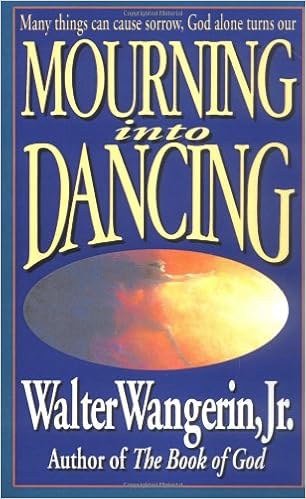 Jesus will come in our generation!
Jesus will come in our generation!
That’s what early converts to Christ envisioned. Paul, too. He wrote to the Thessalonian church: “For this we declare to you by a word from the Lord, that we who are alive, who are left until the coming of the Lord (1 Thessalonians 4:15). (Several years later, he apparently revised his thinking: “ . . . knowing that he who raised the Lord Jesus will also raise us [this is, from death]with Jesus and bring us with you into his presence”—2 Corinthians 4:14.)
No convert questioned the promise of Christ coming again. No apostle either. Nor do we Bible-believing Christians today. We’ve pages of questions about when and in what relation to other end-time events and so on (not to mention all sorts of “certainties” about details). But the New Testament is clear: he’s coming. The Thessalonians, too, had a question, which they apparently relayed to Paul via Timothy’s visit. (From Athens, Paul had sent Timothy back to Thessalonica to encourage these new converts in the faith—3:1-3,6.)
Question: Will fellow-believers who’ve died miss some of the glory of Christ’s second coming because they won’t be alive when he comes? That’s the implicit question Paul answered: “But we do not want you to be uninformed, brothers, about those who are asleep, that you may not grieve as others do who have no hope.” He had taught them about Christ’s return (1:10); but this question probably arose when some of their number died (maybe in the persecution?). What will happen to them? Will they miss the explosive beginning of glory?
What’s so important about knowing the answer? Because Paul isn’t writing a theology of Christ’s Second Coming. He’s not answering every eschatalogical question. Why is it important to know that? Because unless we limit his answer to what they’re asking, we may carelessly read into Paul’s words what he never intended, trying to establish a more complete end-time theology.
Example: Let’s suppose I’ve just had back surgery and you, my friend, email me from California to ask how everything went. Together with my health I include the procedure they used. My explanation is accurate, but it doesn’t include everything about even my surgery, let alone all back surgeries. We should keep that in mind in Paul’s text here.
“But we do not want you to be uninformed, brothers, about those who are asleep (a common euphemism for death), that you may not grieve as others do who have no hope” (4:13, ESV).
Paul writes this, not just to give them knowledge about believers who’ve died, but “that you may not grieve as others do who have no hope.” This isn’t a theology lesson (though the theology is correct); it’s pastoral encouragement for the grieving.
A 2nd century condolence letter to a couple who had lost a son contained these words: “I sorrowed and wept over your dear departed one as I wept over Didymas (the son he’d lost) . . . but really, there is nothing one can do in the face of such things. So, please comfort each other” (1 & 2 Thessalonians, F. F. Bruce). That’s grieving without hope.
These days, however, it seems virtually everybody has the idea that after death comes heaven. In the 2nd century the error was “no heaven for Jesus’ followers”; in the 21st century “heaven’s the next stop on the journey for everyone.”
“For since we believe that Jesus died and rose again, even so, through Jesus, God will bring with him those who have fallen asleep” (4:14, ESV).
Here’s why the Thessalonians and we “may not grieve as others do who have no hope”—“ . . . we believe that Jesus died and rose again.” The resurrection of Christ’s Second Coming is founded on Jesus’ crucifixion and resurrection in his First. “God will bring with [Jesus, when he comes again] those who have fallen asleep.” Jesus’ historical resurrection will be repeated over and over and over again as every believer is raised out of the grave! This is our hope (expectation, future). Grieve? Yes. But not as the hopeless.
“For this we declare to you by a word from the Lord, that we who are alive, who are left until the coming of the Lord, will not precede those who have fallen asleep” (4:15, ESV).
Those who’ve died believing in Christ won’t miss any of the glory by being bodily resurrected after the living are bodily raised. The opposite will be true. Those who died will rise first.
“ For the Lord himself will descend from heaven with a cry of command, with the voice of an archangel, and with the sound of the trumpet of God. And the dead in Christ will rise first. Then we who are alive, who are left, will be caught up together with them in the clouds to meet the Lord in the air, and so we will always be with the Lord” (4:16,17, ESV).
On that day, writes Paul, will come “the Lord himself”. Not a vision or an angel, but “the Lord himself will descend from heaven with a cry of command.” That’s not a whisper in the ear; it’s a military term that raises the dead! Philo, a Jewish philosopher who lived during the time of Christ, spoke of God gathering his people from the ends of the earth with one shout of command.
Together with that command-call will come “the voice of an archangel” and “the sound of the trumpet of God.” The blast of a great trumpet called the Jewish exiles home from Assyria (Isaiah 27:13). And even now these words are spoken in synagogue worship: “Sound the great trumpet for our liberation; lift up the ensign to gather our exiles . . . “ So on that day the great trumpet will call us “exiles” home to our Lord.
Those who died “in Christ” (that is, “connected to Christ by faith and by the Spirit” will rise first. Those alive who are left will be “caught up together with them in the clouds to meet the Lord in the air . . . “ The Greek arpazo, translated here “caught up”, is used of the crowd that tried to take Jesus by force; therefore, it can also be translated “snatch, seize, take away (forcibly)”. The Latin term for arpazo is repere, from which we get the English “rapture.” That word has nothing to do with time in relation to other events; it has to do with the manner in which we believers will rise. Our Lord will enter again a seething, corrupt world and “snatch us up” to be with him.
And rapture raises a question: Does Paul here teach a “secret rapture” of believers before the Great Tribulation? (If that question means nothing to you, good!) For what it’s worth, here’s my understanding in this brief quote from F. F. Bruce: “When a dignitary paid an official visit (parousia) to a city in Greek times, the action of the leading citizens in going out to meet him and escort him back on the final stage of his journey was called the apantaysis (the meeting).” Paul doesn’t say if Jesus then leads the risen believers to earth or to heaven. (I think to earth. We’ll all find out the correctness of our eschatology some day!)
In any case, we believers will meet the Lord in the air and from then on “always be with the Lord.”
“Therefore encourage one another with these words” (4:18, ESV).
Thessalonians grieving over departed loved ones? Will they miss out on some of Christ’s glory when he comes again? Take courage! Be comforted! The Lord himself is coming! And they will meet him in the air first!
Who-goes-first isn’t our problem. Ours is that groundless view that virtually everybody who dies goes. Nothing could be further from the truth. It is the dead “in Christ” who will rise. Therefore, the most important eschatalogical question is this: “Have you turned your life over by faith to the crucified, and resurrected Lord Jesus Christ?”
The final issue is this:
Except for that last generation, we will all die,
most enduring the harsh aging process.
But we can be confident of this:
At the end of this life,
what’s coming is not the grave
but our Lord whom we’ll meet in the air.


 I mean God as revealed in the Bible. The Triune God. God the Father. God the Son. God the Holy Spirit. Occasionally (thankfully not often!), especially when I’m hurting and he seems silent, I wonder if all this God-talk is just that—talk. A creation of humans ages ago passed on from generation to generation until we have a “sacred book” all about him. (Please tell me I’m not the only one who sometimes wonders if God is really there!)
I mean God as revealed in the Bible. The Triune God. God the Father. God the Son. God the Holy Spirit. Occasionally (thankfully not often!), especially when I’m hurting and he seems silent, I wonder if all this God-talk is just that—talk. A creation of humans ages ago passed on from generation to generation until we have a “sacred book” all about him. (Please tell me I’m not the only one who sometimes wonders if God is really there!) Holidays are heart-hurting times if a loved one has been lost. Christmas must be the loneliest, but Easter can’t be far behind. Celebrating Jesus’ resurrection that points to coming reunion which in turn must make the present only emptier.
Holidays are heart-hurting times if a loved one has been lost. Christmas must be the loneliest, but Easter can’t be far behind. Celebrating Jesus’ resurrection that points to coming reunion which in turn must make the present only emptier.

Recent Comments